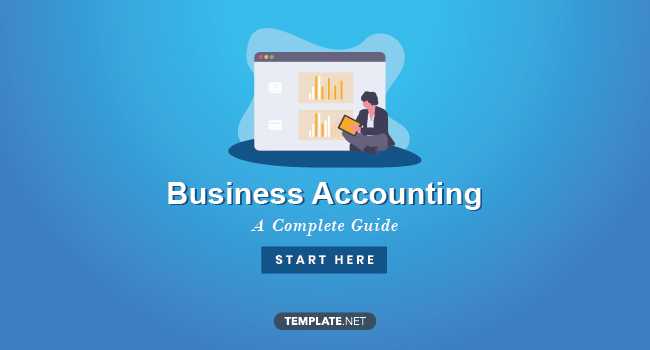Business Accounting: A Complete Guide
There’s plenty of excitement when starting a business. Bosses are eager to get their business plan into motion, and employees are all the giddier to get to work. Don’t get caught up in all the enthusiasm though—you still have to check if your business is making bank. This is where accounting comes into the picture. It’s not a glamorous job, but someone has to do it. Without it, you won’t know how your business is doing financially.

Business Accounting: A Complete Guide
Accounting Methods

Before you select funding options, fill out your expense sheet, or start a business report, you need to choose one out of these two methods to get your business finance in order. This section briefly explains how each method works.
Accrual Accounting
This method records expenses and revenues upon the time of transaction, regardless of the actual time of receipt or payment. Businesses using this method usually track payables and receivables.
Cash Accounting
In this method, revenues and expenses are recognized when the cash is actually received or paid. Many small businesses use this method because it’s easier to track.
Which Method Should You Choose?
Don’t touch that income statement or cash flow statement sheet just yet—you still have to choose an accounting method. Frankly, choosing one isn’t easy unless you’re legally required to pick one from the jump. However, you can make the selection process a little less stressful by buying yourself some time to think. Before you pick, go over your business’s accounting needs. You can enlist a CPA’s help if you’re having trouble. Here’s another important detail to take note: although you can change your accounting method legally, just try and pick one that’s convenient from the get-go to avoid switching them.
Accounting vs. Bookkeeping
Some people tend to mistake accounting and bookkeeping for one another since both employ the use of a datasheet. Here’s how the two are different. Accounting is the analysis, interpretation, classification, summary, and reporting of financial data. Tasks that fall under this umbrella include the preparation of financial statements, operation costs analysis, and completion of income tax returns. Bookkeeping, on the other hand, is more concerned with recording financial transactions. This allows businesses to know where their money is going to and coming from. Bookkeeping tasks consist of the production of invoices, posting of debits and credits, and payroll management.
How to Do Small Business Accounting

Although you have an accountant to help you out, you should at least learn the basics to help your small business get on the right track. Here’s a step-by-step guide to help you through it.
Open a Separate Bank Account
A business’s income has to be stored somewhere. Get a bank account to make record keeping and tax compliance experiences a lot less stressful. Make sure your business has already been registered before you head to the bank of your choice. Don’t forget to bring the necessary business documents too.
Track All Your Income and Expenses
This step can’t be stressed enough. If you want to know your business’s financial performance, keep tabs on the money it spends and generates. Even the smallest receipts shouldn’t be overlooked. One small mistake or estimate may affect the entirety of your business’s budget, so track everything that needs to be monitored.
Select an Accounting Method
This has already been explained earlier. Just go over the descriptions above if you’re unsure about which method to choose.
Establish a Bookkeeping System
Now that you have an idea of what bookkeeping is, you have to pick a system for monitoring your business’s transactions. You can choose one among these three options. Regardless of your choice, remember to follow a strict schedule when bookkeeping to avoid costly delays.
Do-It-Yourself (DIY):
This route isn’t for the fainthearted. If you’re up for the challenge, you can always use accounting software and spreadsheets to help you out. This is suited for beginners and establishments with simple bookkeeping.
Outsourced Bookkeeping:
If you want to prioritize other areas of your business, bring a professional on board to do the bookkeeping for you on a part-time basis. You can also reach out to virtual bookkeepers on the internet if you can’t find a part-timer. If you’re extremely low on manpower, you can enlist the help of an online bookkeeping service to do the job.
In-House Bookkeeping:
If you have a big business, why not hire a full-time bookkeeper? This will make things more convenient since you don’t have to contact outside parties to keep you updated on your business’s finances.
Provide a Chart of Accounts
A chart of accounts is a list that contains the accounts that make up a business’s general ledger. This gives you details of every area your business shells out money to and generates income from. Have this on hand to ensure smooth and steady operations and for reference.
Determine Your Payment Terms
How will your business receive money from your customers/clients? The answer to this question will depend on its nature. You may choose to accept payments at the point of sale, or just opt to invoice them on a specified date.
Accounting Tips for Small Businesses

Avoid bad planning and management by following these invaluable tips.
Separate Business and Personal Expenses
This saves you and your business a lot of time and effort when deductible business expenses need to be tracked. If your contributions to your business capital come from your pockets, don’t forget to document them or risk facing penalties.
Use the Right Tools
Technology has undoubtedly made accounting easier for businesses. While pens and papers are still useful, save time (and the environment) by going digital. Choose tools that have functions suiting your business’s needs.
Maintain Inventory Records
Keep details like purchase dates, sale dates, and stock numbers organized to avoid getting your books in trouble. This can be made easier with the help of inventory management software.
Maintain an Accounting Checklist
Keeping up with daily accounting tasks can be challenging as they pile up. Have a checklist on standby in case you forget to do something.
Keep the (Seasonal) Cash Flow Coming
Cash flows, especially for seasonal businesses, aren’t easy to manage and project. Review your business’s accounting records and make the necessary estimations and computations to keep money coming in.
Do a Regular Accounts Review
Although you have accountants and bookkeepers on your team, you should know what’s happening within the accounting department. This allows you to make important decisions, especially in sticky situations. Leaving everything up to just one person or a few people may jeopardize your business.
Be Aware of Tax Details
You should know the nitty-gritty of the taxes applicable to your business. All it takes is a lot of research to know exactly what you’re paying for.
Good accounting practices allow you to grow your business, so don’t disregard your accounting department and its work. Set SMART goals for business accounting to keep business efficiency to maximum levels. Your business’ financial (and by extension, its overall) health will benefit from your efforts in keeping your accounting in order.






